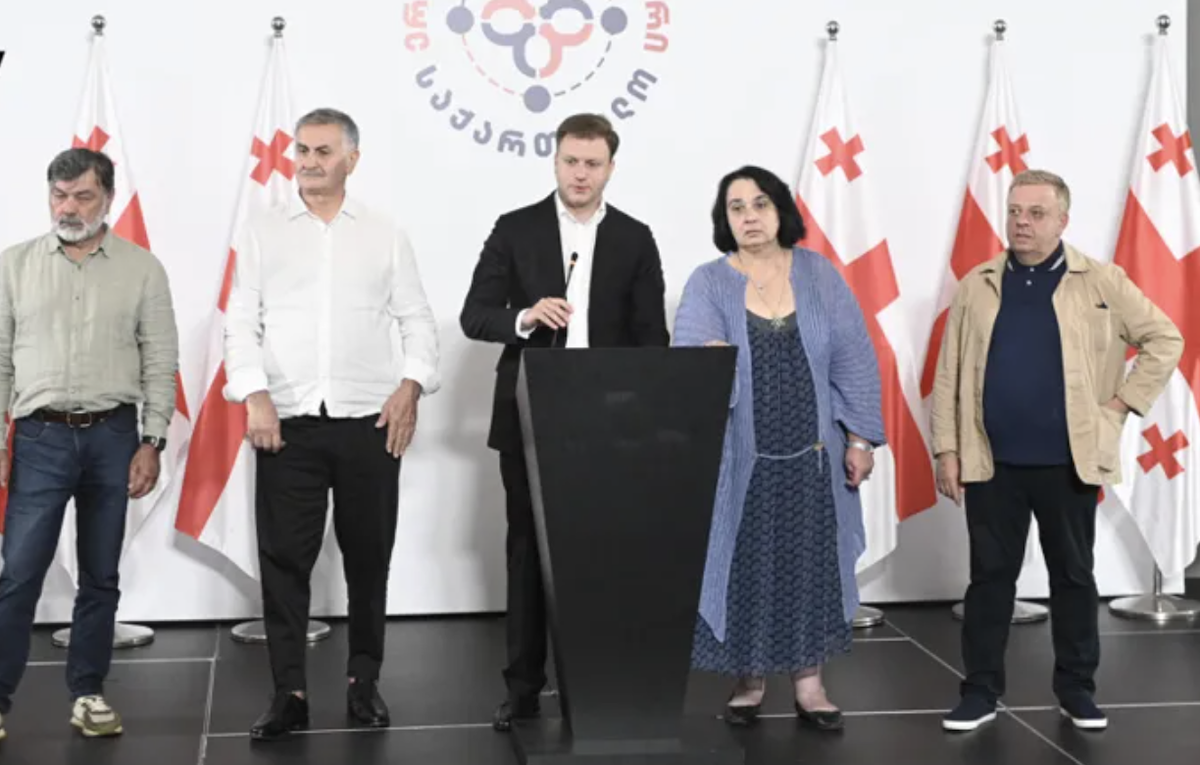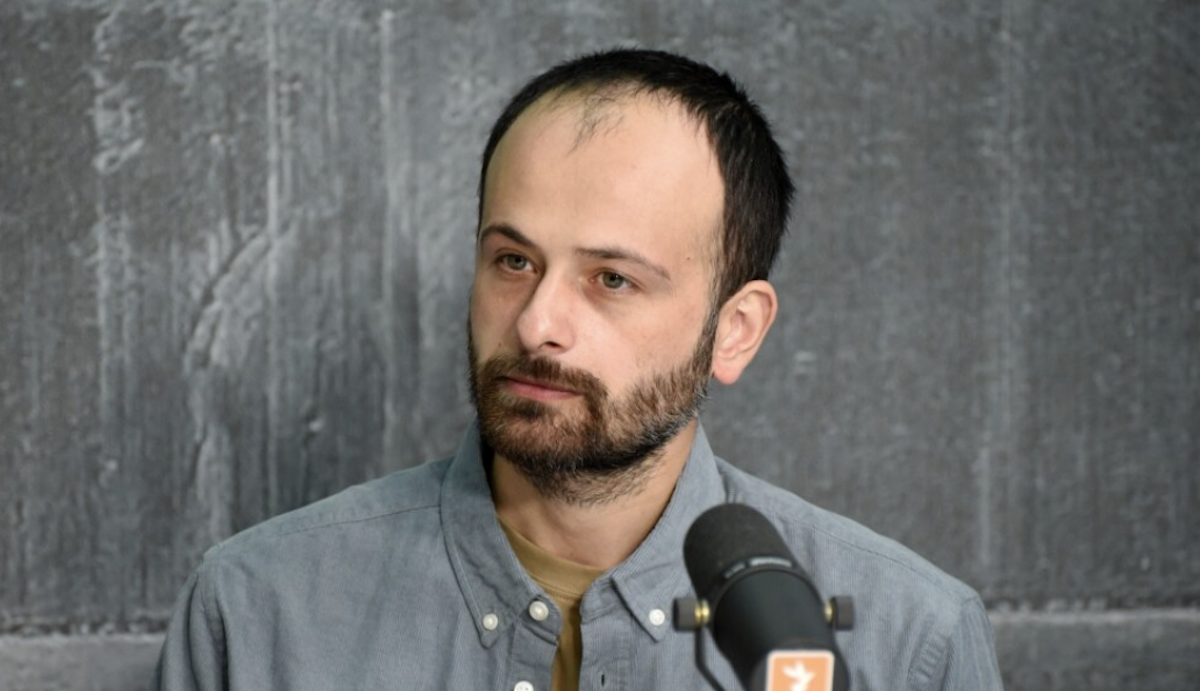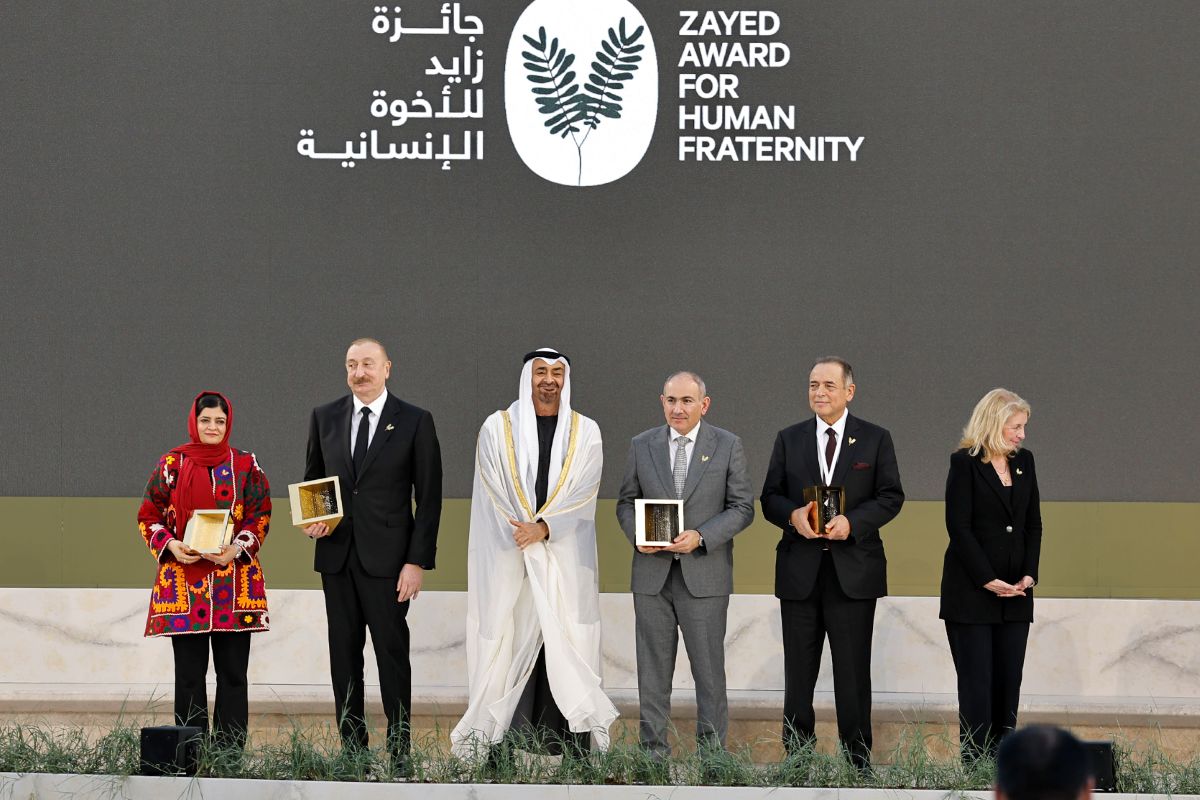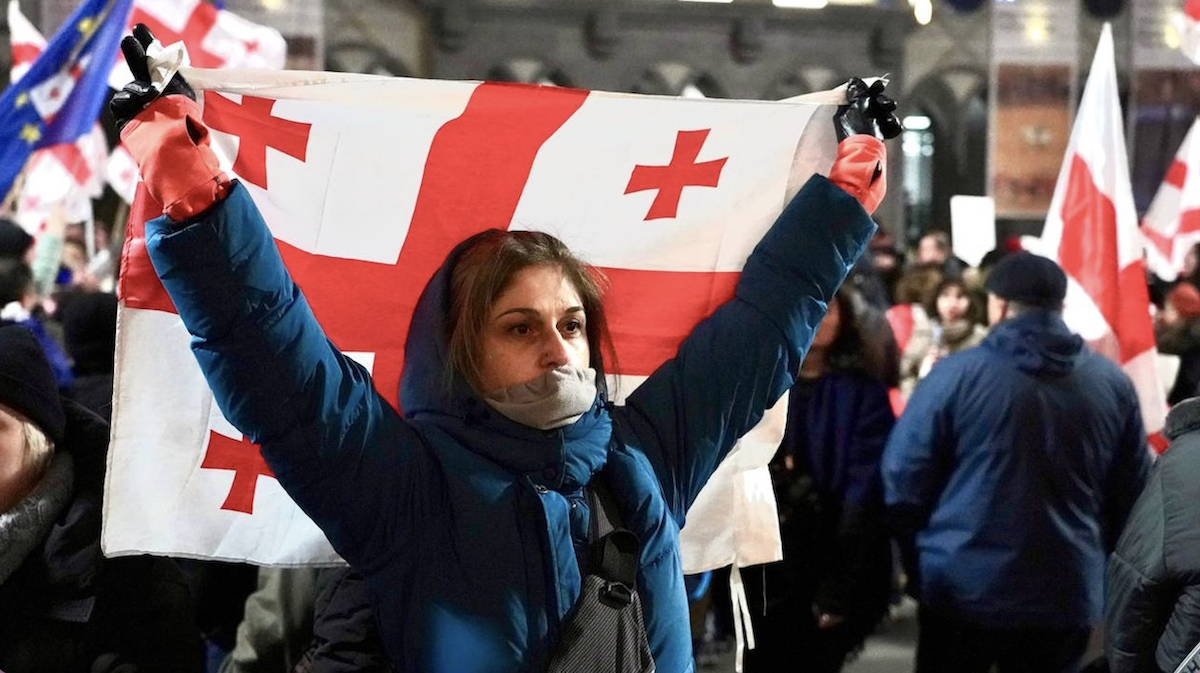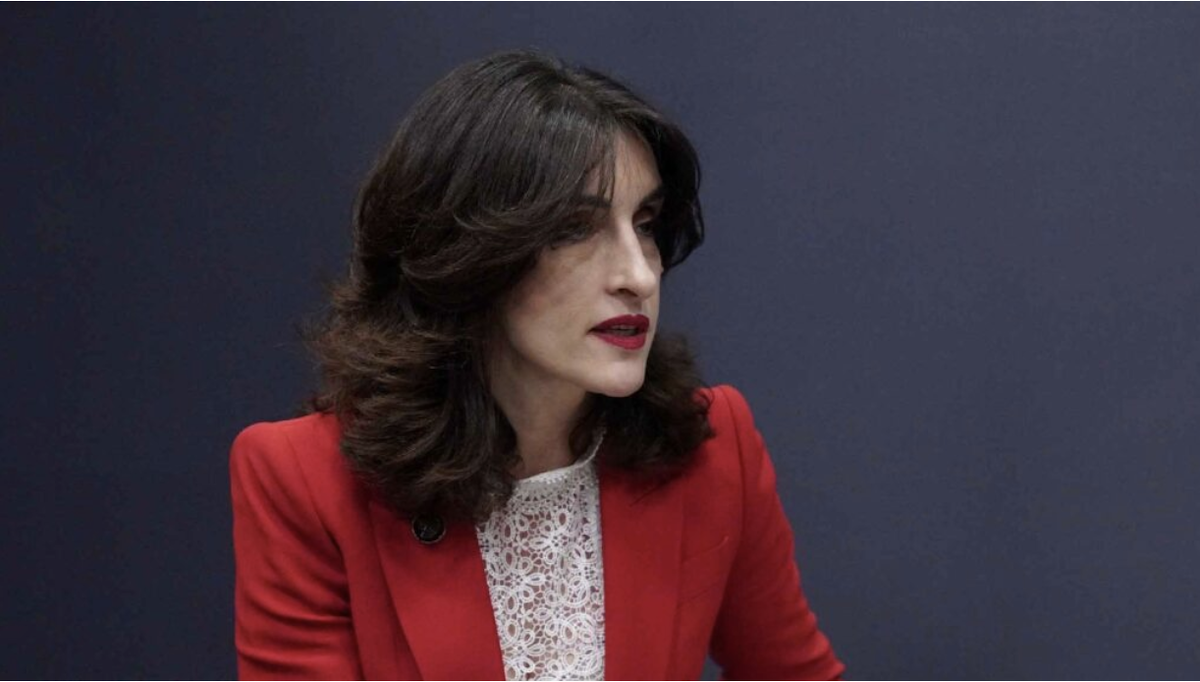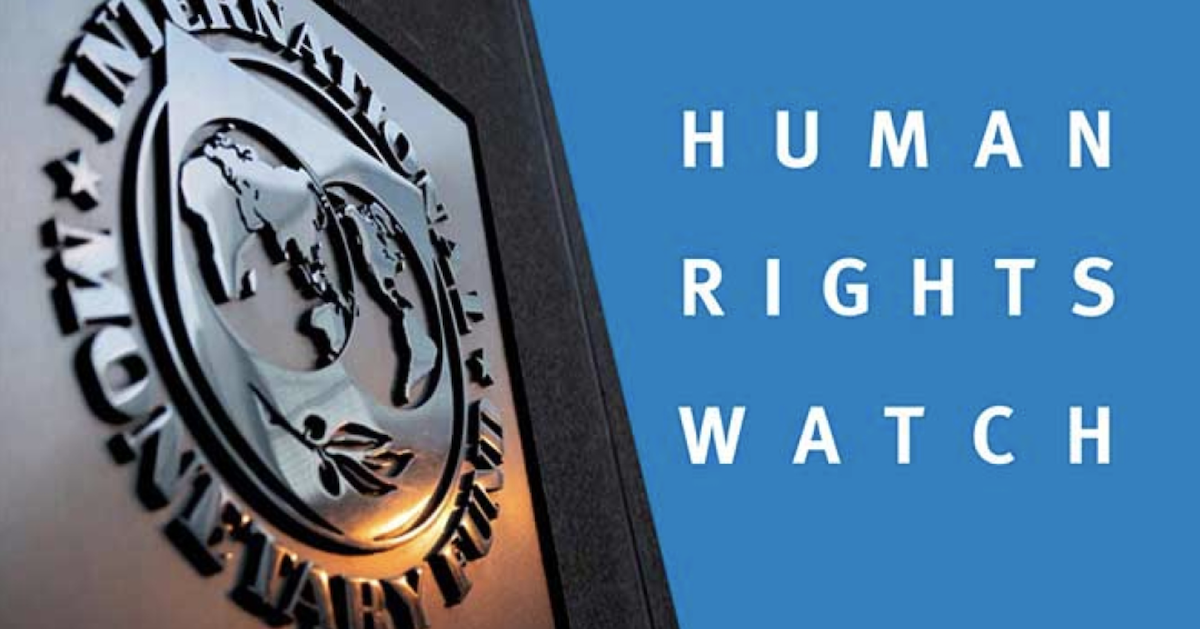Scandalous protocol, or why Russia partially stops funding Abkhazia. Video discussion
Russia stops funding Abkhazia
Neither side has officially confirmed the reality of the protocol from the meeting in the Russian Presidential Administration chaired by deputy head Dmitry Kozak, which was attended by president Aslan Bzhania. However, according to Abkhazian foreign minister Sergey Shamba, its substantive content is quite consistent with reality.
These realities indicate a serious crisis in Russian-Abkhazian relations. The editor of Chegemskaya Pravda Inal Khashig, discussed with former parliament member Leonid Chamagua why we find ourselves in this crisis, who is to blame, and what can be changed.
Full text of the interview:
Inal Khashig: Hello, you are watching Chegemskaya Pravda. Today we will of course discuss current events, specifically the protocol of the meeting led by Dmitry Kozak, Deputy Head of the Administration of the President of Russia, which also involved our President, Aslan Bzhania. There has been a huge uproar. A big scandal.
For several days there were discussions about whether this was fake or not. The current broadcast is being recorded on September 3rd, and just an hour ago, Foreign Minister Sergey Shamba confirmed that at least the substantive part of this protocol is not fake. It is real. Today we will discuss this protocol, the crisis in Russian-Abkhaz relations, and ways to resolve the current situation. Our guest today is Leonid Chamagua. Leonid, good afternoon.
I’ll start with the most recent issue. We were speculating: is it fake or not? It seems we have now confirmed that this document, at least its substantive part, is real. Since September 1st, social payments mentioned in the protocol have been suspended. Salaries for teachers, allowances for doctors, security personnel, and other budget employees are no longer being paid. In other words, these salaries have been cut.
Furthermore, we are starting to purchase electricity. During the fall-winter period we are already facing electricity problems, and now this electricity flow from Russia will be paid for at a commercial price. Previously, we received it under different conditions, but now it’s all at the list price. I would like to start with this economic aspect. We will return to the rest of the protocol later; it is very multifaceted. But right now, I’m interested in the economic side of the issue: how significant is it?
“The purpose of the document (protocol) is to intimidate and blackmail Abkhaz society.”
Leonid Chamagua: First of all, let’s start with the fact that we have a document signed several years ago, in which we committed to paying these so-called allowances to our budget employees by the beginning of 2025 — 80-85% to be covered by us, and Russian aid reduced to 15%. So, it might have been a surprise to some, but it was known and agreed upon in advance. Second, regarding electricity. Last year we were already buying it at a commercial price, so there’s nothing new here.
We don’t know all the details of this document yet, but the authorities are acting as if it is a real document. Note that there are no real denials. The Amtsakhara party issued a statement, but it’s unlikely they know what Aslan Bzhania discussed with Kozak in the office. Their statements contradict what Sergey Shamba said, who emphasized that these points were discussed a long time ago, including with parliamentarians. So, it’s difficult to claim the document is fake at the moment. In any case, I believe it is based on real facts.
The main thing is not to accuse the opposition of stirring up passions, because the purpose of the document is to intimidate and blackmail Abkhaz society. Note: whether it is a fake or a real document, the goal is the same — to intimidate. And the main recipients of this emotional message are the parliament deputies. The reaction of the authorities, the Foreign Minister, and the Presidential Administration, shows that this is a real threat and blackmail.
Although some things mentioned in the document do logically follow from the situation in recent years in our country. The energy problems were not created by the opposition. We remember what happened in parliament in 2020 and 2021, when there were discussions about a lack of capacity. We were promised economic paradise, mining farms, and figures of half a billion or 600 million in the budget, but none of that materialized. The energy sector is destroyed. Who are the clients? Who benefits? These documents help us understand where the interests of the Abkhaz state and its people lie.
Inal Khashig: We’ll come back to that later. For now, I want to start with the economic aspect. Social payments are being cut, and we will also need to pay for electricity — these are significant amounts. Official figures on these sums have not been disclosed by either the authorities or the opposition yet, but it can be assumed that it’s about 3-4 billion rubles.
Leonid Chamagua: In any case, it’s several billion. Last year, we paid about a billion just for electricity, or rather, 900 million rubles. The price will rise this year, and the social transfers will also disappear. We’re talking about at least one and a half billion, maybe even more. Add to this the reduction in social payments — and in the end, it amounts to 3-4 billion rubles.
Inal Khashig: Now, about salaries. It’s fashionable to say that Russia is allegedly blackmailing, but in reality, this was a coordinated decision.
When we say “the Abkhaz side,” who does that refer to? We are shown a document with the signatures of the president and the prime minister.
Leonid Chamagua: Now we need to add why this did not happen, Aslan Georgievich [Bzhania]. If you address Leonid MIkhailovich he can only guess why it didn’t. What can I say, Inal? I think we simply didn’t work in this direction. We committed ourselves, hoping to build apartments in Abkhazia, settle 50,000 to 100,000 Russians there, and as a gesture of gratitude we would be granted an extension or continued financial support from the Russian Federation.
It’s hard to explain why this did not happen. One thing I can say is that the responsible authorities should have done their calculations before signing such documents. We have the Ministry of Finance, the Ministry of Economy, and other structures that should have provided information to their partners based on these calculations. They should have said, “We are ready to gradually, year by year, increase our share by 10% over three, four, or five years. We can take on this financial burden.” I assume that this was indeed the case, as one cannot commit to obviously unachievable obligations.
Now let’s return to the events of the past three years. Have we heard anything about the development of Abkhazia, new economic projects, or job creation? All I’ve been hearing throughout this time is: “We need to do it,” “we need to sell,” “we need to bring in an investor who will become the owner.” We can’t do it any other way; we are not succeeding. I assume that this did not happen because the goals and tasks were different.
By the way, if possible, I would like to turn the page and mention a document agreed upon by our authorities and the authorities of the Russian Federation, which, if I’m not mistaken, contains 46 points related to the harmonization of legislation. For example, point 37 states that we commit to effectively adopting Russian Federation laws regarding NGOs and “foreign agents.” This might be surprising to some, but when this document was adopted and agreed upon, it was clearly stated that the Abkhaz side had taken on such obligations.
I have a question: when we say “the Abkhaz side,” who does that refer to? We are shown a document with the signatures of the president and the prime minister. I don’t judge the situation in the Russian Federation, but in Abkhazia, the executive and legislative branches are separate. Moreover, the legislative branch is not subordinate to the executive. Can the executive branch take on the obligation to submit these issues for discussion, including in the parliament? Yes, it can.
But it cannot take on the obligation to pass the relevant bills and ensure their implementation. That is the parliament’s responsibility. And this is where the pressure comes in. I didn’t think it was possible. Leonid Chamagua tomorrow might lose on Russian citizenship, but we need to explain exactly why? I am openly against these initiatives because, over all these years, no one has been able to explain why they are beneficial. They simply refuse to engage in dialogue with society. I mean society as a whole, not just you or me.
If it is indeed beneficial, then why is the whole country, including the heroes of Abkhazia, signing letters and appeals? There are 96 heroes left, and 72 of them, or 80%, have signed. The whole country is concerned, and we need a brief but clear example. When the president spoke about 30,000 apartments, he initially claimed that this would bring half a billion rubles a year to the budget, then spoke of two billion. His latest statement, which I remember, referred to a profit of one and a half billion. Then a new bill appeared, allegedly proposed by the deputies of the Abkhazian Parliament. It talks about reducing the number of apartments to 15,000, but the projected profit has now risen to 5 billion. No one explains where these figures come from. There is no dialogue with society, and they are trying to impose this on us.
We lean towards the idea that this document is real, and it openly indicates whose initiative it is. One can be a deputy of the Abkhazian parliament and claim it is one’s idea, but when I read the bill, I was surprised. Many things do not correspond to reality. Even the references to laws are incorrect. For example, it claims that foreign citizens and stateless persons can live in non-residential premises, but in fact, it is about them living only in residential premises.
This bill raises many questions. So I get the impression that neither the authorities nor their partners, whether Russian oligarchs or other circles, know what to do with Abkhazian society. For them, Abkhazian society is a problem. The method of intimidation and blackmail looks crude. If we consider the document to be real, it puts pressure on the deputies. The deadline is September 20. We understand that until the origin of this document is clarified, deputies cannot consider bills related to mutual recognition of court decisions, investments in Abkhazia, and other “hot” topics. Otherwise the public will think they have succumbed to blackmail.
Inal Khashig: I still want to clarify, Leonid — we arrived at this point ourselves due to our economic negligence. Let’s call things by their names. When budgets are reviewed in parliament, as a deputy, you know that sometimes these budgets lack in-depth analysis. They are submitted for review and then hastily adopted before the New Year.
Leonid Chamagua: The executive branch creates the budgets in a way that suits it. Responsible deputies try to make minor adjustments, there is a struggle over details, but overall, it happens as you described.
Inal Khashig: Essentially, we don’t have truly serious institutions that can conduct in-depth analysis and calculations.
Leonid Chamagua: Independent ones.
Inal Khashig: Independent… But now the authorities don’t trust independent bodies at all. The authorities have somehow isolated themselves: there is authority, and then there is everything else, which shouldn’t be considered.
Leonid Chamagua: And society doesn’t trust the authorities. This is the general situation, the result of the entire process.
Inal Khashig: What I’m getting at is this: we have gaps in analytical centers, and this affects the fact that we sign documents for which no one is later held accountable. The blame is not only on the parliament. We cannot fulfill the social obligations that were signed with Moscow. Now it has become our headache. And, as you mentioned, the income figures from various projects change quickly, without any logic.
Leonid Chamagua: And nobody provides calculations; they just pull figures out of thin air.
Inal Khashig: I understand that there are global indices, but they are not tied to our economy. Fluctuations in indices like the Dow Jones do not concern us. Nevertheless, figures appear from nowhere. I remember when it was said that the budget would receive 50 million monthly from mining.
Leonid Chamagua: At the same time, it was claimed that our networks were outdated, an investor was needed, and infrastructure needed replacing. But no one explained how the old networks would handle double the load if they were already struggling.
Inal Khashig: We have gaps here, and we still haven’t figured this out. But there is another important issue that concerns not just Aslan Bzhania’s presidency but all previous presidents since 2009, when the investment program began. I noticed one feature: the salaries of our officials have hardly increased since 2010, maybe by a few thousand rubles.
Leonid Chamagua: Adjusted for inflation, there has been virtually no increase.
Inal Khashig: But I see that the same officials have significantly enriched themselves. The investment program, which was supposed to be a boost for economic development and infrastructure creation, has turned into a system for enriching the authorities. The authorities have lost interest in development. If something is lacking, we include it in the investment program. We’re not saving anything.
Leonid Chamagua: We’ll cede part of our sovereignty and get something in return.
Inal Khashig: That wasn’t the case initially; it started later.
Leonid Chamagua: But now the situation is exactly that way.
Inal Khashig: And this indicates that we are to blame for this situation.
Leonid Chamagua: We’re only talking about ourselves.
Inal Khashig: Yes, we are primarily ourselves to blame because we have realized this only today. Every election, we campaigned with slogans about the need to reform the management system and adopt laws, but in reality, nothing has changed. Now, despite the difficulties, it’s time for us to consider whether we are doing things right.
“In no other country in the world do we encounter a situation where guides from neighboring countries come, know nothing about the culture and history of the host country, and sometimes even say offensive things.”
“Some of the current parties and movements are ready to justify any of the president’s actions, despite the fact that no previous president would have allowed even a tenth of what is happening now.”
Leonid Chamagua: When you talk about a reset, it involves many aspects: economic relations, the relationship between the authorities and the people, and generally how the people perceive the authorities. There are many factors here, and, of course, we need reforms. Economists talk about this often. I don’t want to delve too deeply into this, as I am not an economist. I was a parliament deputy, I understand how budgets are formed, I participated in votes, but a lot has been said about the economy. Let me give a simple example.
According to the Russian Federal Statistics Service, the number of tourists arriving in Abkhazia this season has increased by 2.5% compared to last year. However, based on subjective impressions and the words of small hoteliers who run small hotels or cottages, this season is worse than last year. Occupancy only started in late July or early August. I attribute this to the fact that several large facilities with over 1,000 rooms were opened in Gudauta. And I wonder: did we consider this economic model? Do we need large hoteliers in Abkhazia? We are told that an investor is needed. But I don’t think that investments in the hotel business are necessary. Let me explain why.
If we adopt this model with large investors, they will drive our small entrepreneurs out of business. In Gudauta, there are several large hotels that are engaging in price dumping, offering rooms for 900 rubles (10 euros) with three meals a day. This is absurd! The real cost with meals is 2,500-3,000 rubles (25-30 euros). What economic model do we need? I believe we need to support small and medium-sized businesses. Small enterprises, so people can build small hotels and houses, feel like owners, develop their business, produce food, create wineries, taxi routes, and so on.
The people will be involved in the economy. But what happens if a large investor appears? I wonder, who formed the investment package? I read these documents and am in shock. Why do we need an investor in the rapidly developing tourism sector? We see that this ends with demands to provide jobs for Russians, our brothers, friends, and allies. And this is not just a supposition: in no other country in the world do we encounter a situation where guides from neighboring countries come and know nothing about the culture and history of the host country, and sometimes even say offensive things.
Sometimes it seems like these are organized actions against us. We are told: “Don’t interfere, let us work.” I could understand the need for a reset if a forum or symposium with economists and specialists were organized to discuss and determine directions for reform. For example, the green energy sector. Modern solar panels in China, Australia, and Europe are a thousand times more efficient than old Soviet models. Abkhazia, with at least 250 sunny days a year, is ideal for developing this sector. We also need investments in agriculture.
For example, considering the sanctions against Russia, importing flowers from the Netherlands is difficult. Instead of importing greenhouses to supply Russia with flowers, we could develop this area ourselves, given our sufficient land resources. Nevertheless, our authorities continue to attract investors. For instance, take the situation with Mchista, the trout farm. An enterprise that was successful has been effectively ruined and handed over to a foreign investor. Why is this model being imposed on us? I don’t remember discussions in Abkhazia before signing such documents with specialists to determine where investments are needed.
Documents are prepared, and it seems they are signed without proper discussion. The president signs them, although he represents only the executive branch and cannot be held accountable for the implementation of agreements. These projects and agreements should go through ratification and voting, but this is often ignored. The situation needs to change.
Over the past four years, we have observed that some of the current parties and movements are willing to justify any of the president’s actions, despite the fact that no previous president would have allowed even a tenth of what is happening now. An example is when the head of state celebrated his anniversary surrounded by girls, with Georgian wine, which became a subject of public discussion and criticism. This demonstrates contempt for the people and undermines trust in the authorities. In other words, values have decayed.
Every head of state has the right to behave as they see fit behind closed doors, but the head of Abkhazia must remember that they represent the country and its people. If this understanding is absent … over the past four years, we have seen high-ranking officials building hotels and accepting multimillion-dollar gifts. This was not the case before. I’m not claiming there was no corruption, but demonstrative disregard for the people is unacceptable. Further statements by the authorities lose all value. The people are aware of this, and society expresses its opinions of such actions openly. Internal squabbles and competition in greed can happen, but if the authorities promote Georgian wine and the president behaves as he pleases, it will not be accepted by the people.
Inal Khashig: Leonid, when I talk about a reset, I mean exactly this. When the head of state, despite the fact that such responsibilities as adopting specific laws and groups of laws should not fall within his purview, still acts as if he has all the powers. As a result, we have a situation where the president is perceived as a king or a god. The Constitution, even though it defines presidential power, is clearly not intended for such behavior.
Leonid Chamagua: Allow me to interrupt. This president has violated many laws and the Constitution. It is not accurate to say that the Constitution allows for such behavior by the president.
Inal Khashig: Understood. Nevertheless, society has become accustomed to the president acting like a king or a god. This is the result of both the president and society fostering such a perception. The Constitution stipulates the separation of powers, elections to the parliament, and judicial independence, but in practice, presidential power has effectively become almost monarchical. Moscow and the Kremlin understand this well, even if the Constitution formally prescribes the separation of powers.
Leonid Chamagua: And there is a different mechanism in place there. Sorry for interrupting.
Inal Khashig: When the president is elected, politicians often take on commitments that are unachievable and do not correspond to their powers. This indicates that the system is failing, and this issue remains relevant, regardless of the stage of the presidency or the candidate we are dealing with.
Leonid Chamagua: This happens not only with us but also in other countries.
Inal Khashig: Yes, that’s true. However, this does not change the essence. Our system has long required changes. Sergei Bagapsh, Raul Khajimba, and Aslan Bzhania established commissions to reform the Constitution, but there were no changes. There have been no changes regarding presidential powers.
Leonid Chamagua: I apologize, but if I am wrong, the question is not quite accurate.
Inal Khashig: During this time, two presidents have lost their powers prematurely. Aslan Bzhania is criticized, but his position is partly preserved because of the fate of his predecessors.
Leonid Chamagua: Some parts of society are unwilling to accept changes. I understand your question.
Inal Khashig: Our system indeed has failures, and we need to find ways out of the crisis. This is not a matter of political disagreements or a struggle between the opposition and the authorities. Instability and frequent changes in the internal political situation hinder progress. The current crisis presents both problems and opportunities for finding solutions to avoid repeating complex deadlocks.
Leonid Chamagua: I agree, crises can provide opportunities for change.
Inal Khashig: I mentioned the need for reforms and ethical issues. For example, recently, Foreign Minister Sergei Shamba talked about the third point of the protocol concerning the provision of information about deputies and opposition figures with Russian citizenship who may act against the interests of the Russian Federation.
Leonid Chamagua: I read it: the Abkhaz side is obliged to provide information by September 22 on members of the People’s Assembly and leaders of the Abkhaz opposition with Russian citizenship who act to the detriment of the interests of the Russian Federation, for further consideration of the issue of stripping them of citizenship.
Inal Khashig: Now, about morality. Economic carelessness and corruption are one thing. We can survive and correct that. But the demand from the president to hand over our people is another. This is a moral component, which is more serious.
Leonid Chamagua: The president talked about pro-Western sentiments in Abkhazian society and accused some of working for the West. But no previous president allowed such statements and actions.
Inal Khashig: The moral component is of immense importance. We endured many hardships in the ‘90s and can cope with current problems. But such demands from the president violate fundamental principles of justice and trust. But it seems to me that such issues should be addressed in a way where the president first states that under no circumstances could he agree to such things. It is simply impossible, it has never been and could not have been so.
Leonid Chamagua: But at the same time, we are given to understand that the Russian side draws conclusions and will decide for itself who to strip of citizenship. We know what the discussion was yesterday about Russian citizenship and how to punish us. This has been discussed for a long time. We are not considering Amtsakhara’s statement, which we know was false. We are referring to the responsible statement by Sergei Mironovich Shamba, which you are citing, which effectively confirms that such discussions are taking place with the Abkhaz authorities.
Inal Khashig: Moreover, it seems to me that such points and discussions would not have arisen if we had not created this situation ourselves. I mean the actions of our leaders.
Leonid Chamagua: They take on commitments that they cannot make good on without conducting preliminary consultations with society and certain forces in the country.
Inal Khashig: When you are told to provide a list of people who should be stripped of citizenship, it means they already know whom to name. I am talking about the fact that the situation did not arise suddenly. When our citizens are detained at the Russian-Abkhazian border for an hour or an hour and a half, interrogated, and their work and what is happening are checked, this happens regularly. When this was announced, the authorities did not respond. I think the authorities did not pay attention to this.
Leonid Chamagua: They said they did not know and did not have information about such facts. But how can one not confirm citizens’ statements?
Inal Khashig: But we never received a sensible answer confirming that this was happening. Now, when the question arises of presenting lists of citizens, politicians, deputies, opposition figures, and public figures who need to be stripped of citizenship, it means something is wrong here. If there were no background, such demands would probably never have been made to the president of another country. We can discuss the economy and other issues, but there are moral and ethical norms of behavior that should never be violated.
Leonid Chamagua: No, this did happen in 1937.
Inal Khashig: Actually, this happened in 1937. In 1937, it occurred within one state. I’m talking about how in 1989, the Soviet Minister of Internal Affairs was Bakatin. I don’t remember exactly if it was in the ‘80s or ‘90s. He provided information to the American side. At that time, the American embassy was being built, and all this activity was overheard. The Americans naturally thanked him and ignored it as just eavesdropping activities.
However, here we are talking about providing lists of citizens who are to be punished. These people are law-abiding and cannot be condemned. Yet you are trying to compile lists of opponents and show who is in charge here. A parliamentary investigation is needed, and specialized committees should be created to address this issue. This document in question, the protocol, appeared on Friday, and today is Tuesday, and the president is not here, and there is no talk about it. Leonid, such a scandal affects the internal situation and Russian-Abkhaz relations. The president should be here, present, and provide an explanation.
Leonid Chamagua: Let’s assume this is a force majeure situation. Let’s say he broke his leg, at least he could have called and explained. That’s what I mean. Regarding everything that was said, if I may, I want to start by pointing out that it would be unfair of me to skip your comment about the fact that no president has fulfilled promises related to reforms and redistribution of powers. I want to remind you that as soon as Khadjimba came to power in 2015, he talked about adopting a mixed representation system in the parliament, including both party-affiliated and independent deputies. He proposed a relevant document for a vote.
But for the document to be accepted, a constitutional majority was required, and it was rejected. By the way, it was rejected by the opposition and former representatives of the previous government. There were attempts, but nothing was achieved. This is another topic worth discussing. And regarding pressure on the parliament, let’s recall how it began. In the first year of coming to power, there were statements from deputies who were offended and expressed dissatisfaction. For example, after the election results were announced, a well-known Russian politician wrote on social media. Deputies who were supporters of the president were introduced into the parliament, which effectively excluded the opposition from the People’s Assembly.
This almost corresponds verbatim to what was said. The subsequent behavior of the president in the Public Chamber also confirms this. It creates the impression that the parliament has been recognized as a puppet. I apologize if this sounds harsh, but this is not my personal opinion. Moreover, in recent months, the parliament has been showing that it is trying to fight this. However, I have the impression that we are being shown a power system where we need to rethink how we elect our representatives. Yes, funding, where votes and money are distributed, is still present, which many hope for.
If we continue in the same manner, no president from above will be able to change the situation. Changes must be realized by the citizens themselves. We are being shown that deputies are dependent on the executive branch, that their electoral campaigns were financed by someone. This creates unnecessary conclusions and discussions. We cannot assert whether this is the case or not, but it is being forcefully imposed on us.
Regarding your comment that the content of the document exceeds permissible limits, I want to point out one important detail. According to the obligations of the Abkhaz side, it is necessary to provide information about the deputies of the People’s Assembly, opposition leaders, and other individuals with Russian citizenship who act to the detriment of the interests of the Russian Federation. That is, it is not the Russian Federation that determines the harm caused by its citizens, but this harm must be determined by Aslan Bzhania.
In this situation, the question arises: why should the President of Abkhazia determine who is harming a friendly country? It seems strange and unclear. Abkhaz society resists fulfilling these obligations as they do not align with the interests of the Abkhaz people and state. As a result, Aslan Bzhania might have the opportunity to deal with those who are not suitable for fulfilling these obligations. This is not even blackmail — this is an extremely dubious practice. I cannot confidently say how real the document is, but why should the President of Abkhazia be engaged in determining the harm caused to a friendly country? This is completely unclear. These people are law-abiding and cannot be condemned. But at the same time, you are trying to make lists of opponents and show who is in charge.
It is necessary to conduct a parliamentary investigation and create specialized committees for review. For example, if Ardzinba or other opposition leaders are stripped of citizenship, attempts will be made to circumvent this. This is an interesting point and could be discussed at length, but I want to say something else. One can doubt the accuracy and authenticity of the document, but you yourself said that lists of our citizens were provided by the Abkhaz side.
There are quite a few ordinary citizens who participated in rallies, asked uncomfortable questions to the authorities, and expressed their positions. Why these people are being persecuted is unclear to me. Everything hidden will eventually become known. I would like to address officials and responsible individuals who sign such documents. They will not be signed only by Aslan Bzhania but will involve a package of documents from lower levels and beyond. As usual, the authorities will say that we did not initiate this bill, it was the deputies. We remember that the president has been talking about this for two years. Scapegoats will be found.
I would like respected officials and responsible individuals to understand: sooner or later, friends, relatives, namesakes, and those you helped strip of citizenship will come to you. Those who provided the lists will eventually change. If someone suffers because of your actions, loses citizenship, or has already lost it, and then it turns out that you had no involvement, it will have extremely severe consequences at the Abkhaz level. Stripping five people of citizenship is impossible; it will be hundreds. And what is the principle?
The leaders of public-political parties and movements, war veterans, Heroes of Abkhazia, the creative intelligentsia — whom does Bzhania want to keep in the country? Who does he consider friends of Russia? He does not recognize those who supported Abkhazia. Many opposition leaders, by the way, send money and buy drones; they supported the Special Military Operation. They are loyal citizens of Russia. Questions about agreements and the 46 points of the contract remain unresolved. It is unclear who and what this document is for. Imagine that hundreds of citizens have lost Abkhaz citizenship.
Abkhaz society made its decision long ago and does not wish to build relations with the Georgian state vertically.
Leonid Chamagua: The agenda is pushing neutral passports offered by the UN. People with seriously ill relatives who need to leave Abkhazia, Russia, and Georgia will have to refuse these passports? This will worsen the crisis in relations and cause problems not only in Russian-Abkhaz relations. We don’t know where this will lead. To conclude briefly, many link these events to Russian-Georgian relations. Abkhaz society has the will and understanding to say no to its ally. The Abkhaz issue lies in the desires, hopes, and orientations of Abkhaz society. It is focused on building an independent Abkhaz state and a partnership with its strategic partner. Abkhaz society made its decision long ago and does not wish to build relations with the Georgian state vertically. We can only build relations horizontally, recognizing that Russia is a strong state.
Inal Khashig: Let’s wrap up. Today we discussed the protocol of the meeting at the Russian presidential administration led by Deputy Head of Administration Dmitry Kozak and the issues in Abkhazia that threaten Russian-Abkhaz relations. Thank you, Leonid, for your participation. I hope we can emerge from this situation strong and pragmatic, learning lessons. Remember, our program can be viewed on the Chegemskaya Pravda channel, and you can subscribe to the Chegemskaya Pravda page on Facebook. Goodbye.
Terms, place names, opinions and ideas suggested by the author of the publication are her / his own and do not necessarily coincide with the opinions and ideas of JAMnews or its individual employees. JAMnews reserves the right to remove comments on posts that are deemed offensive, threatening, violent or otherwise ethically unacceptable.










